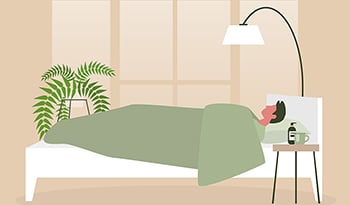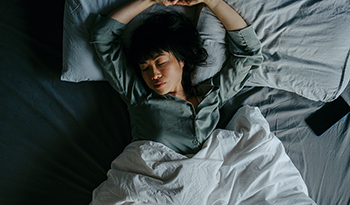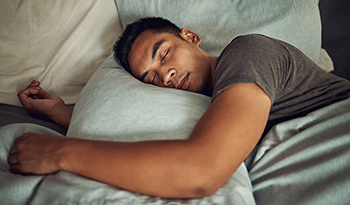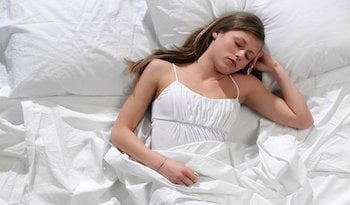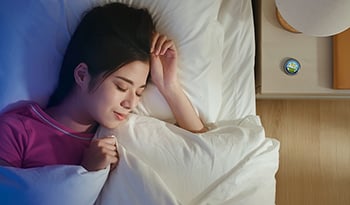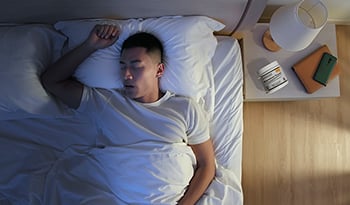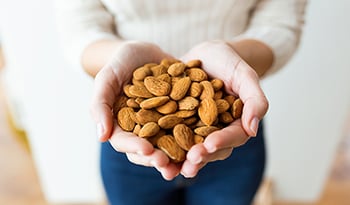8 Herbal Remedies To Help You Sleep Naturally
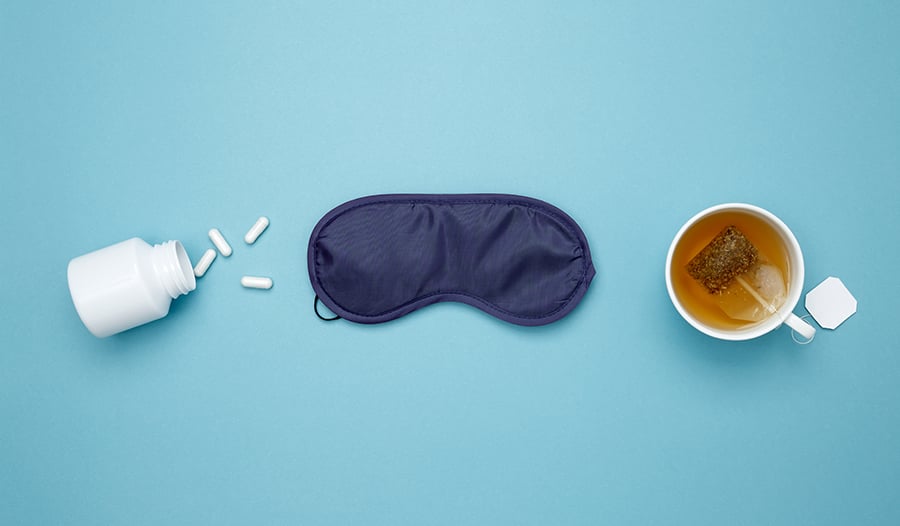
Drifting off to sleep and actually staying asleep can feel like a battle when your mind is buzzing, your body is tense, or daily stress refuses to clock out. If you find yourself spending more time staring at the ceiling than getting the rest you need, you’re not alone. Modern life doesn’t always make room for deep, restful sleep, and the effects can leave you feeling anything but refreshed.
People are increasingly turning to time-honored herbal allies and natural supplements to help the body relax into rest naturally. Herbs like valerian, scullcap, and passionflower have been used for generations to soothe the nervous system, calm the mind chatter, and encourage a sense of ease before bedtime.
If you’re looking for a natural way to help your body ease into deep, restorative sleep, here’s a closer look at eight herbs that can help you unwind, relax, and wake up feeling recharged.
The Powerful Potential Of Natural Sleep Remedies
Herbal remedies for sleep work by addressing the root causes of sleep disturbances, offering a holistic approach rather than simply inducing drowsiness. These remedies calm the nervous system and encourage natural sleep cycles. Below, we’ll explore the most effective herbs for sleep and how they work. Getting to know these plant allies will help you choose the best ones for your unique needs!
Top 8 Herbs for Natural Sleep Support
1. Valerian Root (Valeriana officinalis) – The Tension Tamer
Valerian root isn’t just for sleep, it’s a go-to herb for easing muscle tension and helping the body shift into a state of relaxation. Traditionally used to support deep rest, a proposed mechanism of action for Valerian’s effectiveness is by working to support healthy levels of GABA, a neurotransmitter that calms the nervous system. Another overlooked superpower of Valerian is soothing tight, overworked muscles and releasing built-up physical tension, which in turn helps signal to the body that it’s safe to unwind.
- Why it works: Valerian helps relax both the body and mind by easing muscle tension and supporting a calm nervous system. This dual action makes it especially helpful for those who struggle to fall asleep due to physical discomfort or restlessness. If sleep support is your goal, valerian root extract can create the right conditions for deep and restorative rest.
- Best for: Muscle tension, nighttime restlessness, and overall relaxation.
- How to use: Take a single tincture or herbal blend 30–45 minutes before bed to help melt away muscle tension and prepare for sleep. If valerian makes you feel groggy at all, you may want to limit it to evening use. For added relaxation, combine with other calming herbs like scullcap or hops.
2. Passionflower (Passiflora incarnate) – The Remedy for Racing Thoughts
Passionflower is a go-to herb for those who can’t seem to quiet their busy brains at night and fall asleep. It’s particularly helpful for stress-induced sleeplessness. Like valerian, it supports GABA activity, helping to ease restlessness and promote a sense of calm without being sedating.
- Why it works: Passionflower’s ability to calm racing thoughts makes it ideal for people who experience nighttime anxiousness and restlessness. It can also be useful during the day.
- Best for: Overthinking, restlessness, and difficulty winding down.
- How to use: Use it alone or combine it with valerian for a more comprehensive approach to relaxation.
Pair Passionflower with a mindfulness exercise, like journaling or meditation, to amplify its calming effects and prepare your mind for rest.
3. Scullcap (Scutellaria lateriflora) – The Nervous System Relaxer
Scullcap is a key player in alleviating stress-related sleep issues. Scullcap has been shown in studies to support sleep latency, making it easier to transition into a restful state. It’s particularly effective at soothing physical symptoms of stress, such as muscle tension, headaches, and nervous exhaustion. Sleep can feel just out of reach when your body is tight or uncomfortable—scullcap helps eliminate these barriers.
- Why it works: Scullcap relaxes the body and mind by soothing the nervous system, making it easier to transition into a restful state.
- Best for: Muscle tightness, feeling on edge, overstimulation, and stress-related wakefulness.
- How to use: Combine with other calming herbs like passionflower or hops for a potent sleep blend.
Include scullcap in your evening routine if you’re prone to physical tension caused by stress and feel almost as if you’re overcaffeinated in the evening. It can be a game-changer for mentally and physically unwinding.
4. Chamomile (Matricaria chamomilla) – The Gentle Sleep Aid
Chamomile is the quintessential bedtime herb, often enjoyed as chamomile tea, it’s gentle yet incredibly effective. Its calming properties come from the antioxidant apigenin, a compound that binds to receptors in the brain to promote relaxation. Chamomile is also excellent for soothing digestive issues, which can often be a hidden cause of disrupted sleep.
- Why it works: Chamomile gently eases you into a relaxed state without making you feel sluggish. Its mild sedation is enough to calm nighttime stress and promote restorative sleep.
- Best for: light sleepers, nighttime stress, and digestive discomfort, often caused by a stressful day
- How to use: Enjoy it as tea or tincture before bed. It’s safe enough for use with children as well.
Add warm chamomile tea to your nightly wind-down. You can try chamomile tea earlier in the evening as well, after you get home from a busy day. This ritual encourages your body and mind to prepare for bed.
5. California Poppy (Eschscholzia californica) – The Sleep Cycle Regulator
California poppy gently helps to regulate sleep cycles, making it an excellent option for those with irregular sleep patterns or difficulty staying asleep. Regular use of California poppy can help you achieve a good night's sleep by regulating your sleep cycles. It’s also great for managing mild aches and joint discomfort that interrupt sleep.
- Why it works: California poppy provides holistic support for better sleep with relaxing properties that also soothe body aches or joint discomfort.
- Best for: Irregular sleep patterns, nighttime discomfort, wake-ups.
- How to use: Combine with valerian or scullcap for a tailored sleep blend.
Over time, regular use of California poppy can help your body “relearn” its natural sleep rhythms.
6. Hops (Humulus lupulus) – The Quintessential Herb for Restful Sleep
Famous for its role in brewing beer, hops is an incredibly effective herb for calming the mind and body. Hops can also be used as an essential oil to promote relaxation and restful sleep. Its sleep-supporting effects make it another perfect choice for people dealing with trying to re-establish a healthy sleep cycle.
- Why it works: Hops have a long history of use as a nervine. It contains specific compounds like humulene that help the nervous system relax, supporting healthy sleep naturally.
- Best for: Intermittent sleep issues often related to normal hormone fluctuations of perimenopause and menopause, stress-related
- How to use: Often paired with Passionflower and Scullcap for optimal sleep support
If you’re dealing with night sweats or hormonal imbalances, Hops can be your natural ally.
7. Milky Oats (Avena sativa) – The Nervous System Rebuilder
Milky oats are a gentle, nourishing herb that strengthens the nervous system over time. It’s perfect for people recovering from burnout or chronic stress, providing long-term support for emotional and physical well-being through its bioactive compounds.
- Why it works: As a nervous system trophorestorative that rebuilds the nervous system, milky oats help restore and strengthen your body’s ability to relax naturally over time.
- Best for: Long-term stress recovery, burnout, and emotional overwhelm.
- How to use: Take regularly for several weeks as part of a holistic wellness routine.
Think of Milky Oats as a tonic for restoring balance. It’s perfect during challenging life seasons!
8. Linden (Tilia spp.) – The Heart-Soothing Sleep Aid
Linden’s calming effects on both the heart and mind make it ideal for tackling emotionally rooted sleep issues. Whether you're dealing with grief, restlessness, or high levels of stress, linden gently encourages relaxation and emotional peace.
- Why it works: Linden has historically been used to relieve emotional stress and uplift spirits, promoting a sense of serenity that helps ease one into sleep.
- Best for: Emotional or stress-related restlessness.
- How to use: Take a tincture or brew a cup of linden tea before bed.
Pair linden tea with a calming bedtime book or a warm bath to relax both body and mind.
Why Herbal Remedies Work for Better Sleep
Herbal medicine addresses the root causes of sleep issues while enhancing your body’s natural ability to regulate sleep. These remedies work holistically, targeting both the mind and body to create lasting improvements in sleep quality. Here’s how they make a difference:
These natural remedies work synergistically to calm the mind, ease the body, and promote better sleep. By incorporating these herbs into your routine, you can gently support your nervous system, reduce stress, and enhance your overall sense of well-being, all while promoting healthier, more restful sleep patterns.
Tips for Integrating Herbal Tinctures into Your Routine
Looking to enhance your nighttime routine naturally? Herbal tinctures can be a great addition to help you unwind and prepare for restful sleep. Here are some tips to seamlessly integrate them into your evenings:
- Take herbal tinctures around 30–45 minutes before bed.
- Pair with relaxation practices like a warm bath or a 10-15 minute meditation
- Set a consistent bedtime and do everything you can to stick with it!
- Avoid blue light exposure for at least an hour before your bedtime. Dim and turn off lights around your home to support natural melatonin production.
- Create a calming nighttime atmosphere with soothing scents like lavender essential oil.
Consistency is key!
Stick to these healthy sleep hygiene habits, and over time, you’ll notice how much easier it becomes to relax and enjoy more restorative sleep.
Sleep Better With Herbal Remedies
Herbs like scullcap, passionflower, and hops have been used for centuries to promote relaxation and improve sleep quality. These herbs gently calm the mind, soothe tension, and prepare the body for restful sleep, offering a natural alternative without the side effects often associated with synthetic medications.
In addition to these well-known herbs, several others, such as lemon balm and ashwagandha, each have unique properties that support relaxation and promote better sleep.
Incorporating these herbal remedies and their active ingredients into your evening routine can help you unlock the restorative power of nature, creating a nightly ritual that promotes better rest and enhances your overall well-being.
References:
- Awad R, Arnason JT, Trudeau V, et al. (2003). Phytochemical and biological analysis of skullcap (Scutellaria lateriflora L.): a medicinal plant with anxiolytic properties. Phytomedicine, 10(8):640-649.
- Grundmann O, Wang J, McGregor GP, Butterweck V. (2008). Anxiolytic Activity of a Phytochemically Characterized Passiflora incarnata Extract is Mediated via the GABAergic System. Planta Medica, 74(15):1769-1773.
- Appel K, Rose T, Fiebich B, et al. (2011). Modulation of the gamma-aminobutyric acid (GABA) system by Passiflora incarnata L. Phytotherapy Research, 25(6):838-843.
- Srivastava JK, Shankar E, Gupta S. (2010). Chamomile: A herbal medicine of the past with bright future. Molecular Medicine Reports, 3(6):895-901.
- McKay DL, Blumberg JB. (2006). A review of the bioactivity and potential health benefits of chamomile tea (Matricaria recutita L.). Phytotherapy Research, 20(7):519-530.
- Bent S, Padula A, Moore D, Patterson M, Mehling W. (2006). Valerian for sleep: a systematic review and meta-analysis. American Journal of Medicine, 119(12):1005-1012.
- Donath F, Quispe S, Diefenbach K, Maurer A, Fietze I, Roots I. (2000). Critical evaluation of the effect of valerian extract on sleep structure and sleep quality. Pharmacopsychiatry, 33(2):47-53.
- Dhawan K, Kumar S, Sharma A. (2001). Anti-anxiety studies on extracts of Passiflora incarnata Linneaus. Journal of Ethnopharmacology, 78(2-3):165-170.
- Brock C, Whitehouse J, Tewfik I, Towell T. (2014). American skullcap (Scutellaria lateriflora): a randomised, double-blind placebo-controlled crossover study of its effects on mood in healthy volunteers. Phytotherapy Research, 28(5):692-698.
- Amsterdam JD, Li Y, Soeller I, et al. (2009). A randomized, double-blind, placebo-controlled trial of oral Matricaria recutita (chamomile) extract therapy for generalized anxiety disorder. Journal of Clinical Psychopharmacology, 29(4):378-382.
- Morin CM, Koetter U, Bastien C, Ware JC, Wooten V. (2005). Valerian-hops combination and diphenhydramine for treating insomnia: a randomized placebo-controlled clinical trial. Sleep, 28(11):1465-1471.
- Chang SM, Chen CH. (2016). Effects of an intervention with drinking chamomile tea on sleep quality and depression in sleep disturbed postnatal women: a randomized controlled trial. Journal of Advanced Nursing, 72(2):306-315.
DISCLAIMER:This Wellness Hub does not intend to provide diagnosis...

















































































 Table of Contents
Table of Contents



